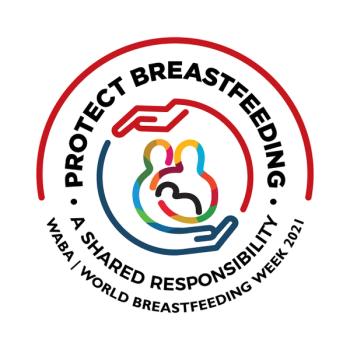
A 12-week trial found implementing a dietary approach using a low-fat, vegan diet could help reduce the incidence of moderate-to-severe hot flashes in postmenopausal women.

A 12-week trial found implementing a dietary approach using a low-fat, vegan diet could help reduce the incidence of moderate-to-severe hot flashes in postmenopausal women.

It was a busy week for the Contemporary OB/GYN® team.

August is National Breastfeeding Awareness Month. Join us throughout the month as we share statistics, facts, patient and provider resources, and more.

The findings of a secondary analysis from a randomized trial of intrauterine devices (IUDs) for emergency contraception should bolster confidence about the low pregnancy risk when providers insert an IUD following a recent episode of unprotected intercourse.

Emergency department (ED) visits in women affected by leiomyomas, or uterine fibroids (UFs), are increasing, but hospital admissions for this patient population are decreasing, according to a study published in the journal Obstetrics & Gynecology.

Pregnant women who had cancer previously or currently have cancer were more likely to experience comorbidities and in-hospital complications, depending on cancer type.

While pregnancy rates fell at the beginning of the pandemic, researchers expect a birth volume increase based on prospective modeling.

The results, according to the study authors, demonstrate that screening the general population for tubal and ovarian cancer each year does not result in a survival benefit.

The first months of life set the course of a child’s health. How effective is an intervention at improving weight outcomes in the infant and use of postpartum care by the mother?

August is National Breastfeeding Awareness Month. Join us throughout the month as we share statistics, facts, patient and provider resources, and more.

This acquired chronic dermatosis has a 6- to 10-fold predilection for women, so it is especially relevant to a gynecologist’s practice.

NIH recently convened an expert panel to develop standardized criteria to define placental COVID-19 infection.

What to look for this week on Contemporary OB/GYN®

It was a very busy week for the Contemporary OB/GYN® team.

Practice management is an essential part of any practice. Our new column will explore essential topics including billing, coding, contract negotiation, telehealth management, financial wellness, and more.

The American College of Obstetricians and Gynecologists (ACOG) recently published an updated committee opinion regarding morcellation of presumed uterine leiomyoma. Here are the key points.

The American College of Obstetrics and Gynecology (ACOG) announced today that it has joined nearly 100 health care organizations and societies in favor of vaccine mandates for all health care workers.

In last month’s Legally Speaking, we published “Health care fraud exposed” by James M. Shwayder, MD, JD. It is disturbing in its details but exposes fraud and medical malpractice that went on for years. The ob-gyn at the center of it, Javaid Perwaiz, was recently sentenced to 59 years in prison.

Even with these recommendations, women commonly ask questions about alcohol consumption and breastfeeding such as “Should I pump and dump if I have a glass of wine?” and “Do I just wait until it has passed through my system?” This month, experts Susan Crowe, MD, and Tricia Wright, MD, MS, provide the needed insight—with as much data as are available on this topic.

Introducing Contemporary OB/GYN® Editorial Advisory Board member, Christine Isaacs, MD.

The CDC updated its guidelines for diagnosing and treating STIs, which included updates on the diagnosis and treatment of bacterial vaginosis (BV) in pregnant and nonpregnant women.

Celebrated annually by the World Alliance for Breastfeeding Action (WABA), World Breastfeeding Week is a global campaign to raise awareness and galvanize action on themes related to breastfeeding.

What are the impacts of alcohol use during lactation?

A reader writes in to discuss an issue with an article published on June 15, 2021, titled "Progestogen-only pill for emergency contraception."

What to look for this week on Contemporary OB/GYN®

According to data from the Centers for Disease Control’s (CDC) National Breast and Cervical Cancer Early Detection Program, the total number of cancer screening tests declined 87% for breast cancer and 84% for cervical cancer during April 2020.

The Centers for Disease Control and Prevention (CDC) updated its guidelines for the treatment of sexually transmitted infections (STIs), notably for Neisseria gonorrhoeae, Chlamydia trachomatis, Trichomonas vaginalis and pelvic inflammatory disease (PID).

The American College of Obstetricians and Gynecologists (ACOG) and the Society for Maternal-Fetal Medicine (SMFM) recommend the COVID-19 vaccine for all pregnant individuals. The recommendations come amid the current low vaccination rates and increase in cases.

A randomized controlled study in Pain Research & Management validates the potential role of antioxidants in managing endometriosis.

Adolescent oral contraceptive use is associated with a small yet meaningful increased risk of experiencing an episode of major depressive disorder (MDD) in early adulthood, especially among women with no history of MDD in adolescence.